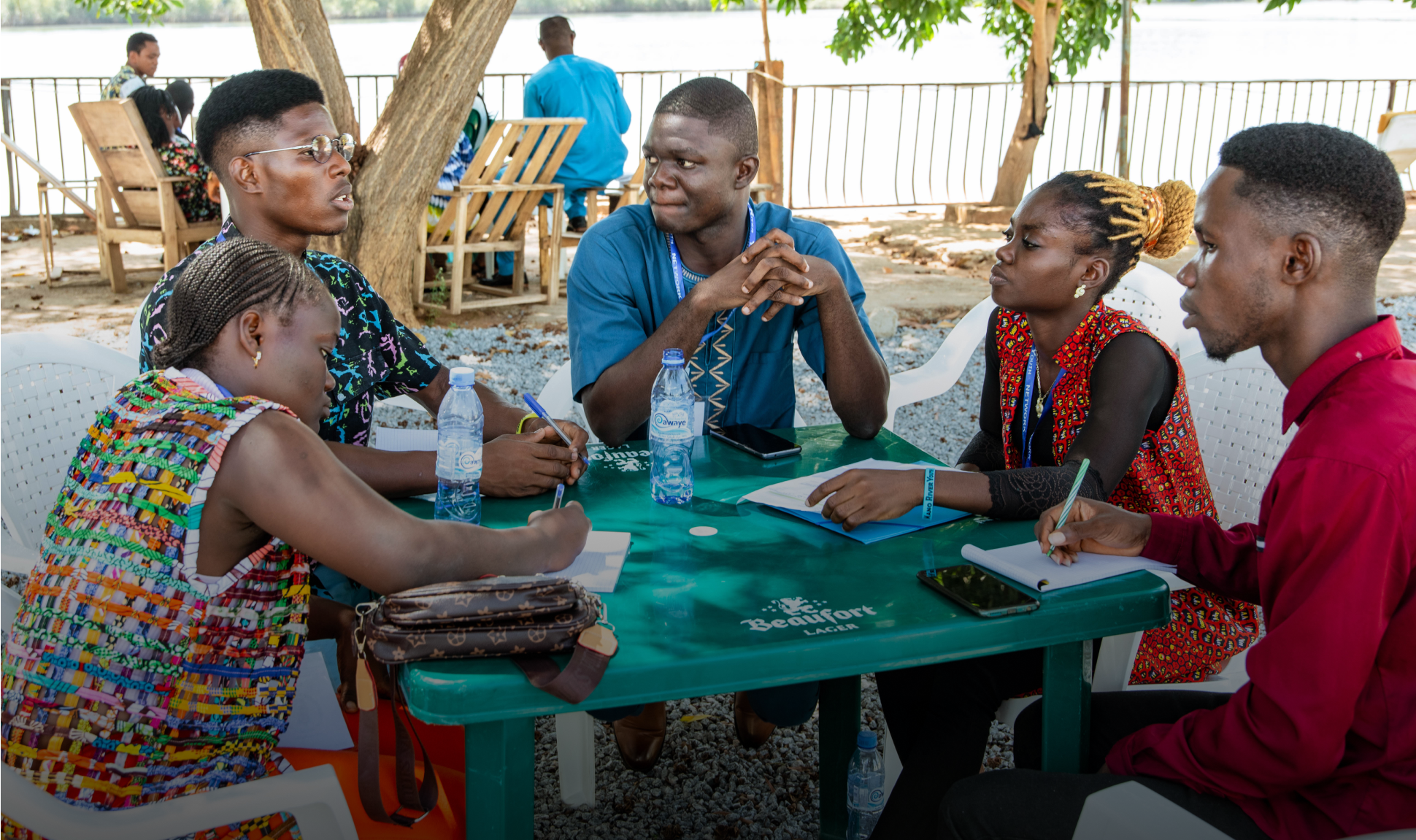This article was published more than 4 years ago.
During epidemics like COVID-19 or Ebola, community-led organizations in Africa have been key to ensuring that the needs and safety of marginalized and vulnerable populations are not overlooked. And few groups need more help than children and youth facing criminal charges.
In West and Central Africa, where our Children’s and Youth Rights Program is focused, activists are working to increase children’s access to justice. Last month, we convened a virtual panel of groups that we support to discuss strengthening pathways to juvenile justice during the COVID-19 pandemic. Here are three insights from that discussion that can inform future efforts to protect children’s rights.
1. Community-based groups are vital
After years spent building the juvenile justice system in Sierra Leone, activists and community groups continue to strengthen its ability to protect children. But during the pandemic, the system has been overwhelmed. As a result, youth caught violating curfew or similar petty offenses have been frequently dealt punishment by law enforcement on the spot—tossed into jail for the night or even beaten on the street. Girls and young women are at particular risk for violence in these situations. Those who do enter the formal court system have often been jailed with adults, since youth-specific remand homes do not exist.
The gaps in youth-directed justice systems and lack of family resources have made activist-led efforts even more critical.
Defence for Children International – Sierra Leone (DCI-SL) has a long history of helping communities resolve less serious cases rather than take children to the police. During COVID-19, the impact of this work stood out: in communities where DCI-SL partnered with local leaders to develop action plans addressing children’s rights, every case of children in conflict with the law was resolved at the community level.

The Fund-supported Women’s Action for Human Dignity (WAHD) also stepped in to push back against police brutality and keep children out of adult prisons. Established by schoolteachers working to remove barriers to girls’ education, the group has forged trusted relationships with families and youth as well as government officials. As a result, WAHD were able to swiftly develop and launch a project with police and the Ministry of Gender and Children’s Rights to document abuses and curb violence against youth—especially young women—during the pandemic. WAHD has also gone to court to secure the release of children during COVID-19.
“The issue has been left in the hands of civil society [organizations],” says Betty Alimamy Sesay, acting director for WAHD.
2. New ways of working can help usher in longer-term change
When Uganda’s lockdown began at the end of March 2020, all judicial hearings were immediately directed to proceed online. Yet remand homes for youth lacked the necessary technology and capabilities. Lawyers and legal advocates—who were not recognized as essential workers—were unable to visit clients, further complicating the issue. That meant that any child with a pending case was left living in remand homes that were quickly becoming overcrowded.
By July 2020, the juvenile justice system was officially overloaded. New arrests were on the rise due to emergency measures—homeless youth could be arrested for breaking curfew, for example. And earlier cases remained in limbo.
But the Fund-supported Free Child Uganda, a group of advocates dedicated to minimizing children’s exposure to the juvenile justice system, was working overtime. They jump-started a pilot project with officials to tackle the backlog. They secured bail for youth facing petty offenses. They also partnered with UNICEF to tackle more serious cases and bring the infrastructure for judicial hearings into remand homes.
In two months, they had cleared 65 cases. Courts agreed to expand the new system to all remand homes. And police issued new guidelines aimed at diverting cases away from detention.
“The biggest takeaway for me… was that for the first time the Ugandan police force appreciated that petty cases can actually be diverted,” says Winfred Adukule-Meuter, director of Free Child Uganda. “They agreed that detention of children was going to be a matter of last resort.”
3. COVID-19 adaptations can’t exist in a bubble
Just as activists warned, many COVID-19 emergency measures have become permanent fixtures. But some of these new laws were enacted without considering the long-term consequences for the justice system. In Kenya, for example, this meant that a child arrested for selling goods in the market without a permit could be charged by the state—a much more serious offense. With citations piling up, the justice system was at risk of becoming overwhelmed.
Enter Legal Resources Foundation Trust, an organization that works to improve access to justice for marginalized people in Kenya. With support from the Fund through our COVID-19 Grassroots Justice Fund partnership, the group has worked to prevent as many juvenile cases as possible from entering the formal court system during the pandemic. Using a statute that requires youth cases to be addressed within 6 months, they fast-tracked critical cases and introduced mediation sessions. They also launched a public education program so that people understood the new laws and policies governing their lives.
This work can’t be limited to COVID-19 though, notes Eric Mukoya, chief executive officer of Legal Resources Foundation Trust. Their aim is to take mediation, education, and similar strategies to more communities beyond the pandemic and to leverage pandemic adaptations to reform the criminal justice system at large.


